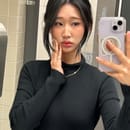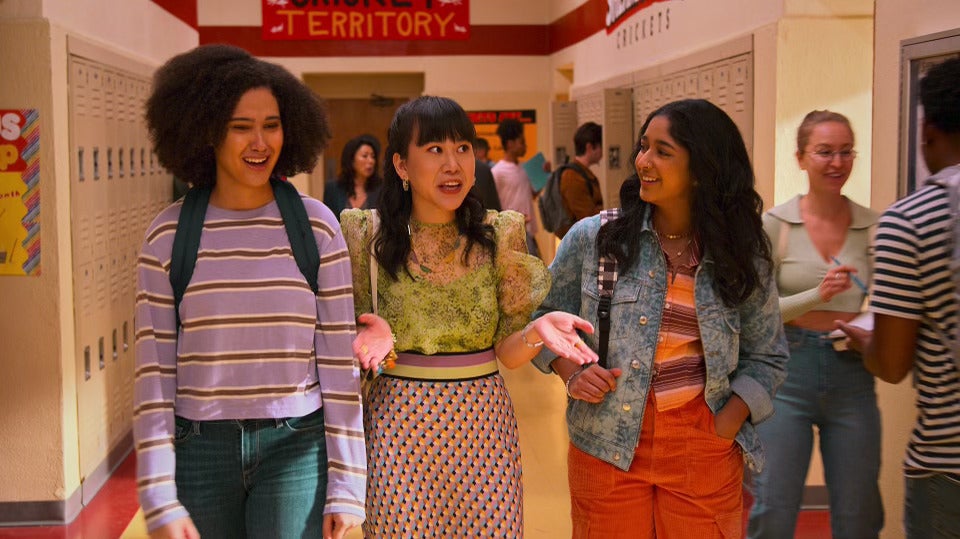College is oftentimes romanticized in the media, as it is commonly associated with newfound freedom, steamy romances, and giant groups of friends that are all somehow tight knit and homey. However, the equally common stereotypes of college students that involve copious amounts of caffeine, boatloads of homework, and mild alcoholism are just as well-known. Unfortunately, such stereotypes tend to be expanded upon and exaggerated, regardless of their supposed positivity or negativity.
As a child who grew up in the mid-2000s and early 2010s, I consumed a lot of television and online media. I was fascinated by the interpretations of boarding schools and universities, complete with all of those lovely stereotypes I previously mentioned and many, many more. Though I was perhaps too young to truly understand the impact that these interpretations had on their audiences, a certain scene from the popular teen Netflix show “Never Have I Ever” brought me all the way back to my formative years spent in front of the TV.
In season three episode ten of “Never Have I Ever”, the main character, Devi Vishwakumar (played by actress Maitreyi Ramakrishnan) is accepted into an elite boarding school in Colorado. Devi, a high school junior at the time, lives in California and goes to a typical public high school. Though she is initially hesitant despite her academic prowess, her mother convinces her to take a trip to the school before making a decision. Once she visits the school, it’s quite clear that the creators of the show played up certain stereotypes on not only Colorodians, but higher education in general.
Though the school, called the Shrubland School, is not considered a college but rather a preparatory boarding school for “academically gifted [high school] seniors”, it still takes those stereotypes that people have of college students and exaggerates them. These exaggerations are played up tremendously, shocking both Devi and her mother with their different norms and expectations in comparison to her current schooling experience. The first conversation that they have with a staff member involves him insisting they refer to him by his first name, something that Devi’s mother calls “disrespectful nonsense.” The light satire continues when they mock the name of the class the staff member is teaching (comparative literature and cultural theory) as well as the flexible curfew. It goes further when Devi is allowed to observe the class, and they are having an open discussion whilst sitting in a circle outside in the grass. The tone, run-on sentences, and big words that the students have in their discussion have a satiric effect; they are trying to portray and make fun of a non-standard form of education. Though in the end Devi and her mother do insist that they like the school, the joking and exaggerated stereotypes make for an interesting portrayal of higher education.
Interestingly enough, Devi as a character is extremely invested in her academics: she is dead set on attending Princeton and much of her rivalry with one of her romantic interests stems from their academic competitiveness. Due to this, it is important to note that while these satiric portrayals are not inherently negative, it makes it very easy for someone to criticize and spin it into a negative opinion. The Shrubland School is described as both a great opportunity if Devi wants to go to an Ivy League school and a “disrespectful” hippie school.
I can recall seeing such exaggeration for humorous purposes in TV shows geared towards younger audiences, such as “iCarly”, “Zoey 101”, and “Victorious”.
In season one episode twenty-one of the popular Nickelodeon show “iCarly”, the main character Carly Shay is offered a full-ride scholarship to a fancy boarding school, called Briarwood. Similarly to Devi from “Never Have I Ever”, Carly is hesitant to leave her friends and her public school, despite all of the wonderful things Briarwood has to offer. The scene that really played up the satirization of the boarding school was a fever dream Carly has, in which she is sitting in class getting a massage and eating frozen yogurt. The coursework they are completing is extremely easy, and when she answers a question she gets rewarded automatically. Though it is obvious that it was exaggerated in her dream, this portrayal shows the assumptions that people have about higher education, though they would never say it aloud.
Both “Zoey 101” and “Victorious” take place full-time at a fancy boarding school, unlike “iCarly” and “Never Have I Ever”. Instead of deciding against attending such a school, the main characters in both shows are already enrolled for a majority of the show’s runtime.
Tori, the main character of “Victorious”, attends an art school called Hollywood Arts, in which students seem to have a lot of control over their own education. Tori is a singer and performer, and much of her school scenes include a quirky teacher who is referred to by the mononym Sikowitz. Sikowitz is often seen exhibiting odd behavior, such as drinking out of a whole coconut with a straw, wearing eccentric clothing (often without shoes), yelling at students, and having little outbursts in order to motivate them in their acting careers. Sikowitz himself contributes to the satire, as he seems to almost be a caricature of a professor given his extremely lenient nature. Outside of his class, the students seem to have a lot of free time and flexibility. There are even certain episodes that feature characters that attend other “normal” high schools, in which there is always an awed compliment or two towards the “unconventional” school that Tori attends.
Similarly, “Zoey 101” takes place at a boarding school. There are less specific examples in this show, rather, the setting speaks for itself. The beachside campus, trendy hangout spots, and academic flexibility was clearly a higher education institution covered by a lens of naivety— this of course, is due to the fact that it is just a children’s show.
It could be argued that such TV shows were never meant to be realistic. In fact, it’s a common criticism upon Nickelodeon and Disney Channel that the lives portrayed by the characters are unrealistic and romanticized.
Regardless, the portrayal of higher education in children’s TV is apparent. The end goal is unclear—perhaps there isn’t even one—but the effect that it has on its young audience is forever ingrained in their minds, one way or another. Whether it remains a distant, naive childhood memory or a foundation for present perspectives, the things we hear as children stay with us and influence us, whether people want to admit it or not.




